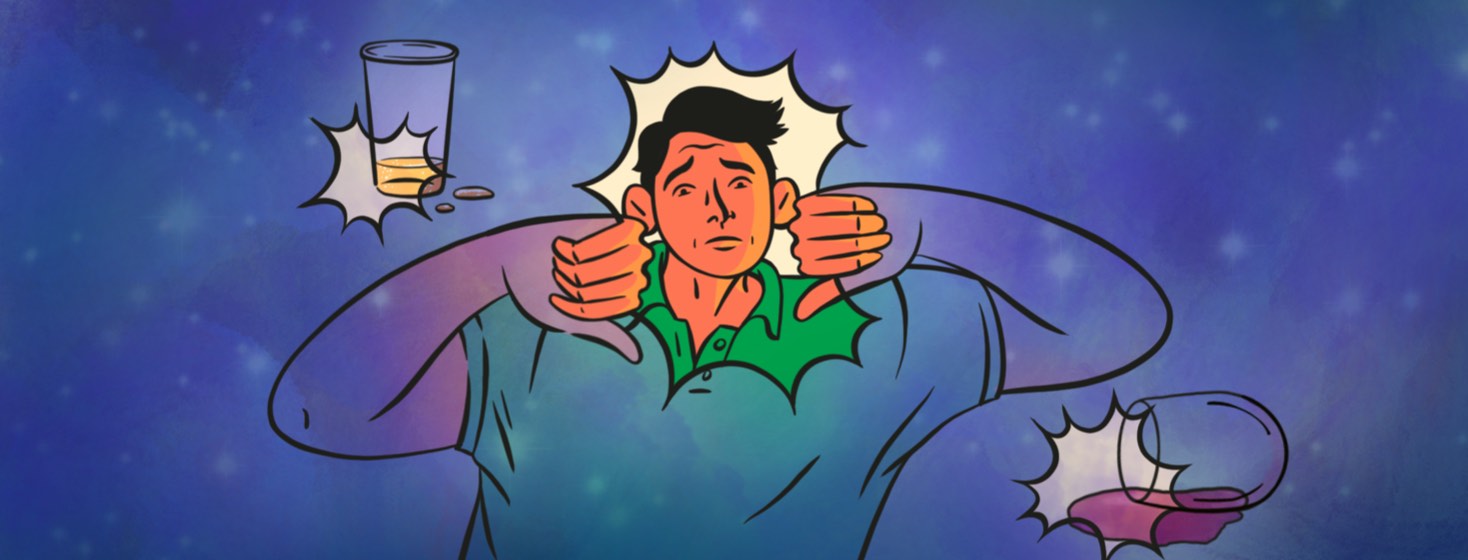Drinking Your Depression
Step 1. We admitted we were powerless over alcohol, and that our lives had become unmanageable.
For many of us, depression has a deadly consort: substance abuse. There's no use in engaging in a chicken and egg exercise – it doesn't matter "which came first." What matters is that for many of us, the substance was the solution to our depression.
As Gabor Mate writes in In the Realm of Hungry Ghosts: Close Encounters with Addiction, "It is impossible to understand addiction without asking what relief the addict finds, or hopes to find, in the drug or the addictive behaviour."
Alcohol and depression
Although I did my fair share of experimenting, my drug of choice was alcohol. It has been studied and documented that alcohol can worsen depression symptoms and in some cases cause them. Alcohol is a depressant that alters the brain's chemical balance, which can trigger the symptoms of depression. Alcohol can:1
- Lower serotonin and norepinephrine levels, which help regulate mood
- Temporarily cut off the effects of stress hormones
- Depress the brain and nervous system
- Alter the brain's chemical levels
Numbing it away with alcohol
Like most other abused substances, it is the oblivion and numbing we are after. We'll do anything to make the anxiety and depression stop, and flooding our systems with an intoxicant provides temporary relief. But when the effects wear off we find ourselves at the bottom of an even deeper hole.
The unmanageability referred to in step 1 is about more than the booze. It's about all the self-destructive parts of me.
Deciding to detox
The combination of depression and addiction are one of the reasons that rehabilitation centers and recovery houses are so essential. The critical time period for the depressed person fighting addiction are the days after s/he puts down the substance.
Rehabs have highly developed protocols for detoxing addicts and keeping them in a safe and supportive environment for a time while a comprehensive recovery plan is developed, one that deals with both the substance abuse and the mental health issues.
"Restore us to sanity"
Step 2. Came to believe that a Power greater than ourselves could restore us to sanity.
It's always been interesting to me that the creators of the 12 Steps wrote "restore us to sanity" and not "restore us to sobriety." It seems that even in the 1930s, when AA was being developed, the afflicted knew that it was one part of a larger constellation of conditions.
Alcoholism as a symptom of depression
Many people in recovery say, "Alcoholism was the symptom of a deeper problem – one that I couldn't work on until I got my addiction under control, a day at a time." That’s another difficult aspect of this combination: the addiction is the dominant condition, and nothing else – like depression - can be effectively treated until we put the substance down.
But what about this "Power greater than ourselves" business? Perhaps the essential act of 12 Step recovery is one of moving from self-focus to other-focus.
The power of community
When I start to feel that I can be of benefit to someone else in the suffering we share in common, the hold my addiction and depression have on me weakens. Both diseases want to drive me into isolation and kill me there. Programs of recovery put me in a room with other people, and some days, just that is enough – not being alone.
The creators of AA went to great pains to stress that this "Higher Power" was something each of us designs for ourselves. Yes, they use the word "God" a lot, along with the outdated masculine pronoun. But for many in recovery, God stands for Group Of Drunks.
The opposite of depression is connection
What's critical is that I come to believe that something wants what's good for me, and in acknowledging that "something," I am on the road to a recovery that lasts.
For someone with depression, this can seem to be an insurmountable leap, believing that something, somewhere, doesn't want me to suffer, believes in me, and wants to support my healing. This is why having other people in my life is essential: a therapist, friends, co-workers who see attributes in me I can't see in myself some days.
To borrow again from the rooms of recovery: the opposite of depression is connection. Or, let us love you until you can love yourself.
My recovery from alcohol addiction
Here's something else my journey in recovery from addiction has shown me: If I continue to actively practice the principals of my recovery program, my addiction will stay inactive. But my depression remains.
Yes, I don't have the suicidal nosedives brought on by a shaky hangover after a 3-day bender. But still, it lingers.
One day at a time with depression and addiction
I'm grateful I have these rooms to go to, filled with the most amazing people, recovering together one day at time. I'm not there to deal with my depression, but like so much else, my recovery soothes that part of me too.
The truth of course is that it's all connected. My depression and my addictive behavior are related, interwoven. It's as if there are 2 doors to a room containing the hurt part of me, one through my recovery from addiction, and one through the treatment of my depression.
There's a beautiful monster in there, and maybe I can help him out.
This or That
Are you happy with your current depression treatment?
